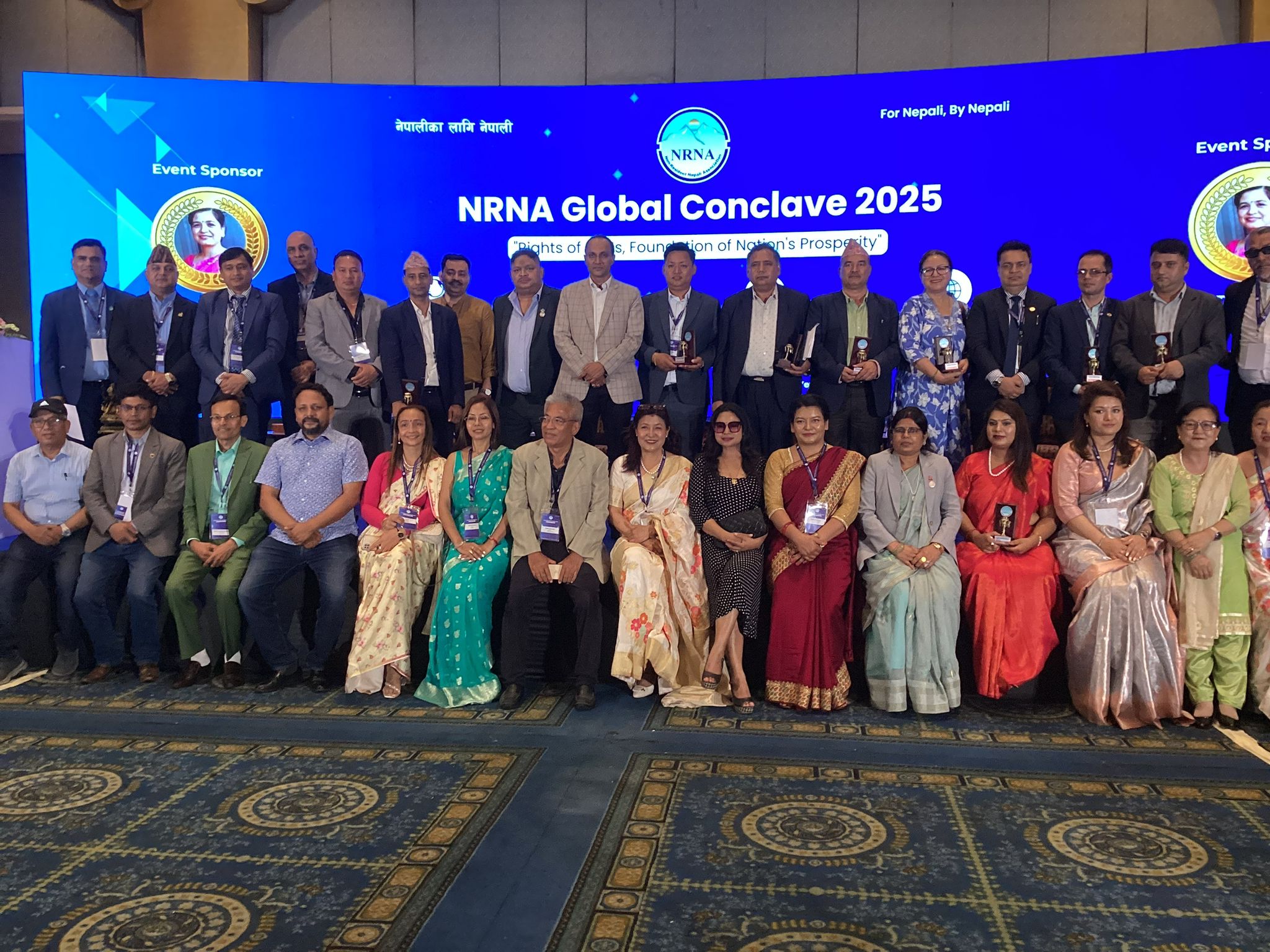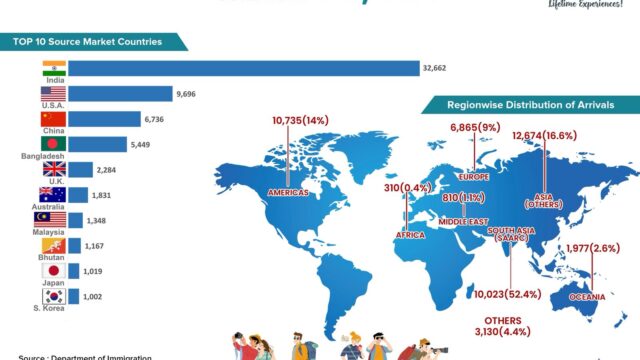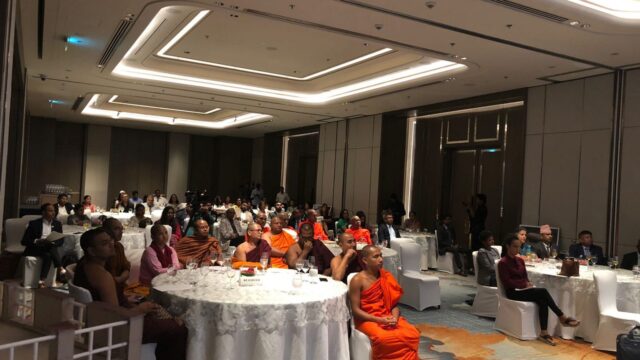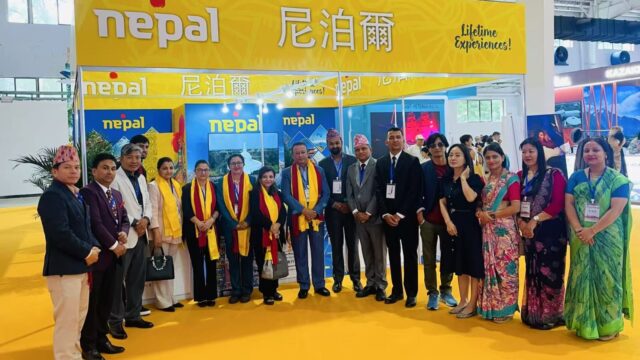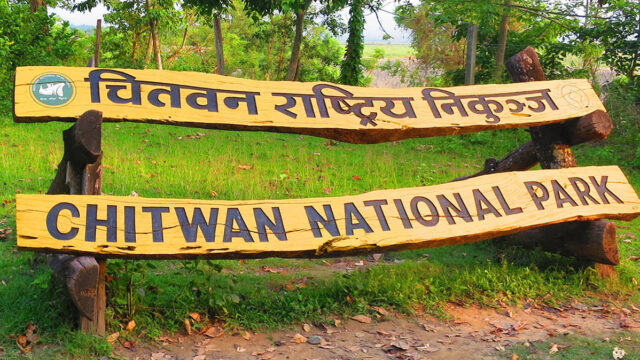The Non-Resident Nepali Association (NRNA) has reiterated its strategic role in promoting Nepal’s tourism and exports on the global stage during the third session of the NRNA Global Conclave 2025. Held under the theme “Strategic Role of NRNA in Promoting Nepal’s Tourism and Exporting Nepali Products Globally – Opportunities, Challenges, and Policy Gaps,” the session convened an esteemed panel of government officials, diplomats, tourism professionals, and global diaspora leaders to chart out pathways for Nepal’s international outreach and economic diplomacy.
Keynote Address: Private Sector-Led Tourism Emphasized
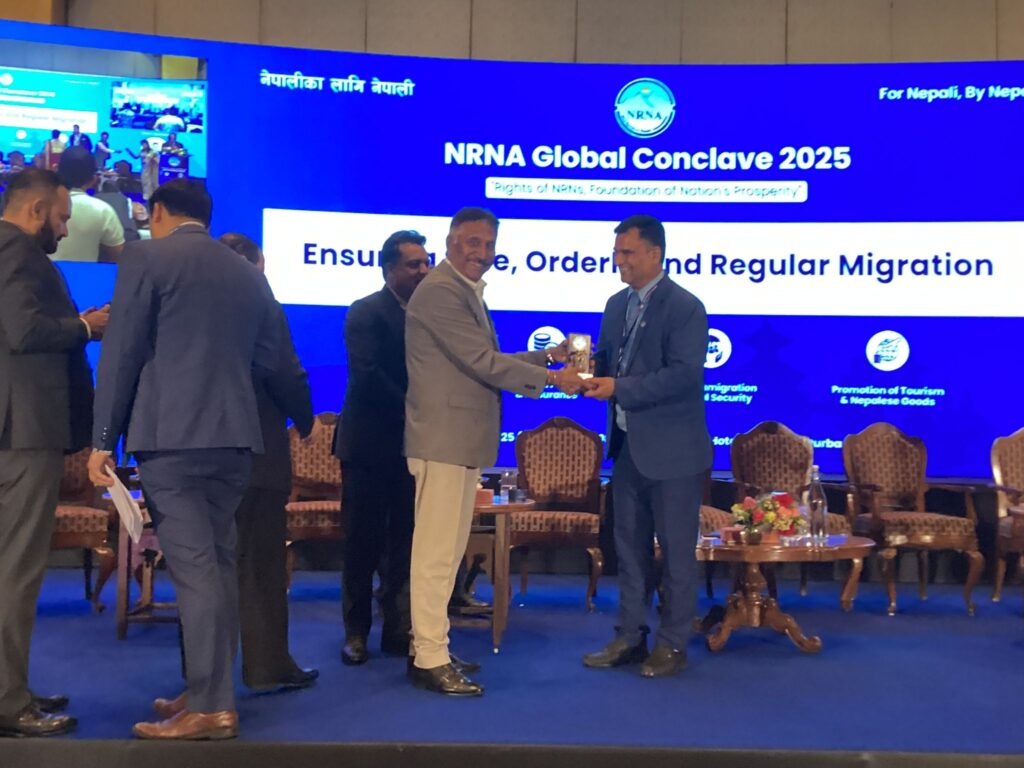
Delivering the keynote, Honourable Sharat Singh Bhandari, Minister for Labor, Employment and Social Security and former Minister for Tourism and Civil Aviation highlighted the untapped potential of Nepal’s tourism industry. Stressing the need for robust infrastructure and international air connectivity, he called for a private sector-driven model with the government playing a facilitative role. Recalling the milestone of over 800,000 tourist arrivals in 2010, Minister Bhandari advocated a renewed, coordinated effort to replicate and surpass that success.
NRNA’s Global Outreach Initiatives Spotlighted
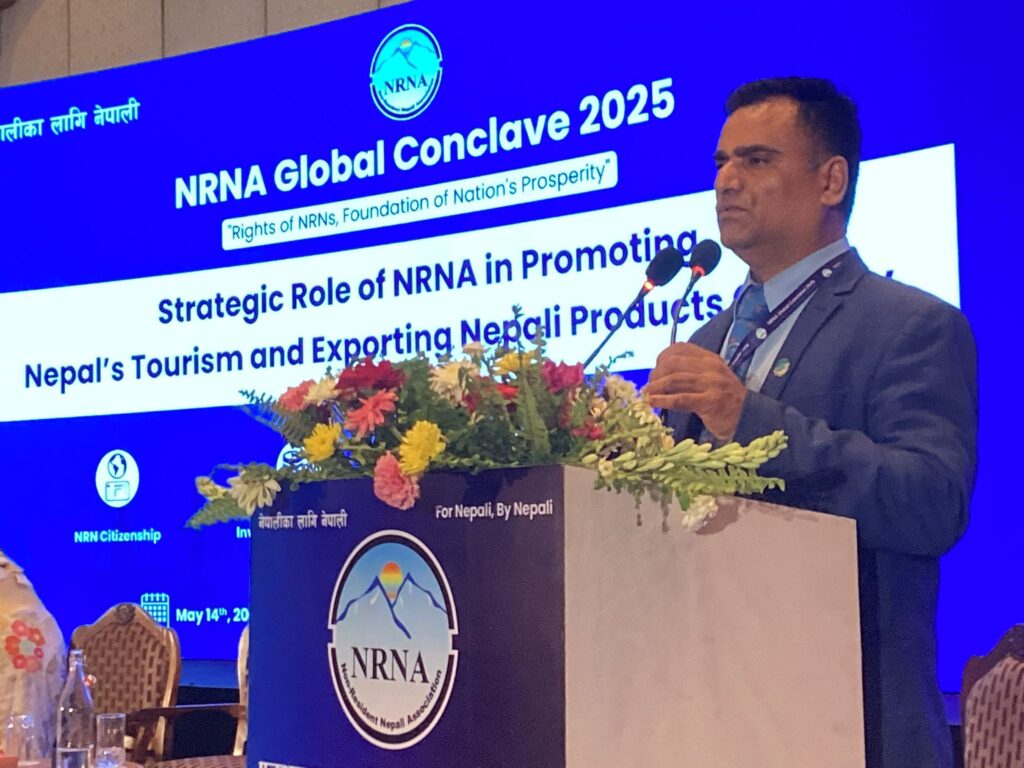
Mr. Som Nath Sapkota, Deputy General Secretary of NRNA ICC and Chair of its Tourism Promotion Committee, coordinated the session and presented a comprehensive account of the Association’s global tourism campaigns. From Nepali Melas and cultural parades to expos and Nepal Festivals in Europe, North America, Asia, and the Middle East, Sapkota emphasized NRNA’s commitment to branding Nepal as a premier global travel destination.
He urged the Nepal Tourism Board (NTB) to supply standardized promotional materials to NRNA National Coordination Councils (NCCs) to maintain brand consistency abroad. He also emphasized the urgent need for direct air links to Europe and Australia, along with improved aviation safety standards, to attract more tourists and better engage the diaspora. He proposed hybrid promotion strategies that merge on-ground events with digital campaigns to broaden Nepal’s international visibility.
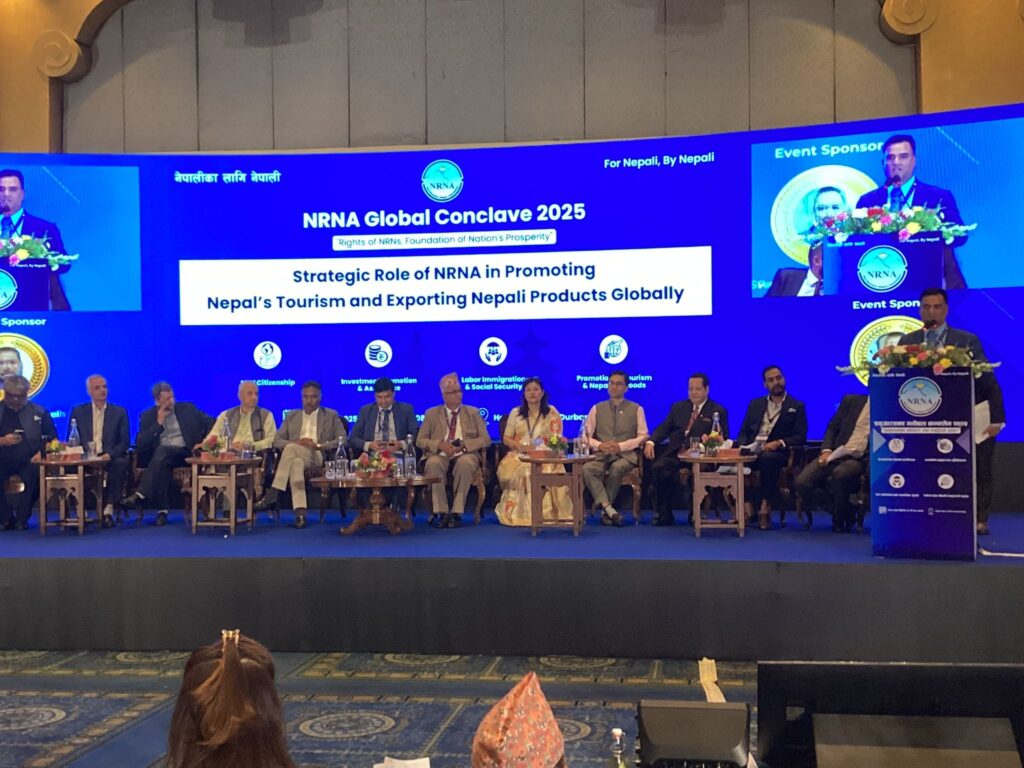
Strong Government-Diaspora Collaboration Proposed
Senior officials from the Ministry of Culture, Tourism and Civil Aviation, including Mr. Shiva Raj Regmi, and representatives from the Pacific Asia Travel Association (PATA), reinforced the government’s commitment to building sustained partnerships with NRNA and international tourism bodies.
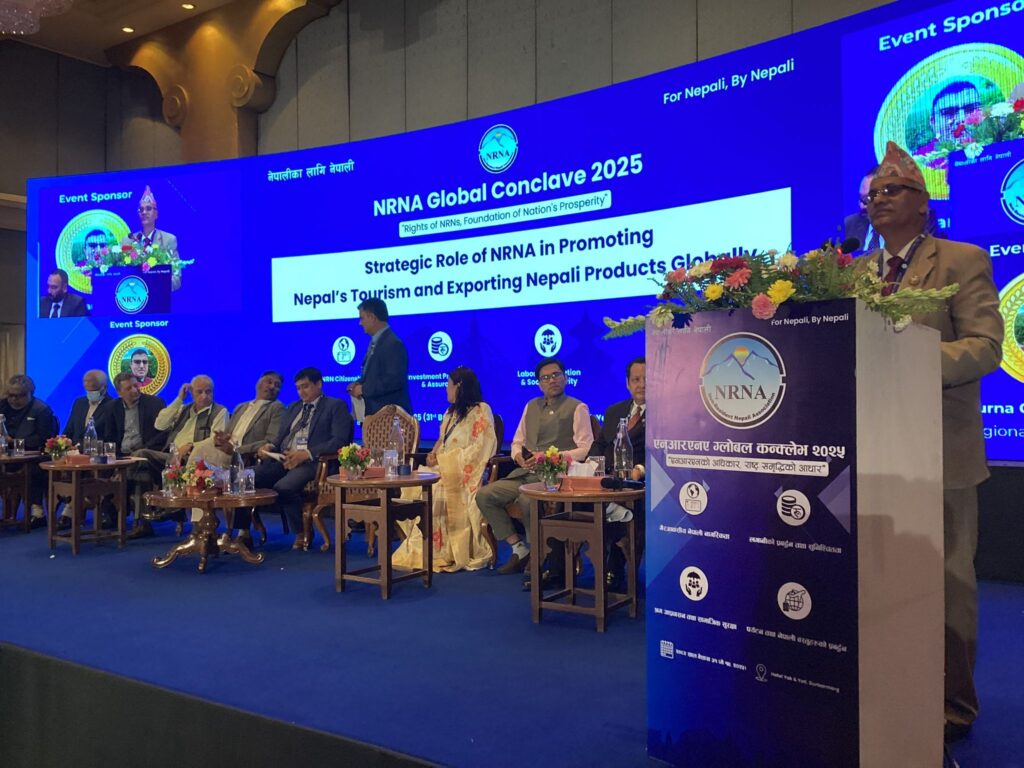
Former Chief Minister of Sudurpaschim Province, Mr. Rajendra Singh Rawal, advocated for the creation of seven provincial tourism circuits. Highlighting lesser-known gems like Khaptad and Ramayana heritage sites, he called for tourism decentralization beyond Kathmandu and Pokhara, and encouraged NRNA’s support in provincial tourism development.
Addressing Infrastructure and Aviation Challenges
Civil Aviation Authority of Nepal (CAAN) Director General Mr. Pradeep Adhikari addressed the pressing concerns over high airfares and limited flight routes. He emphasized expanding aircraft capacity, boosting aviation safety compliance, and working with the diaspora to initiate new international routes.
From the NTB, Mr. Sunil Sharma introduced a proposal for a three-day cultural and tourism orientation program for NRNs, aimed at empowering them as “informal ambassadors” of Nepal. This program would equip NRNs with cultural insights and accurate tourism information to promote Nepal globally with confidence and clarity.
Institutionalizing Diaspora Engagement in Tourism Law
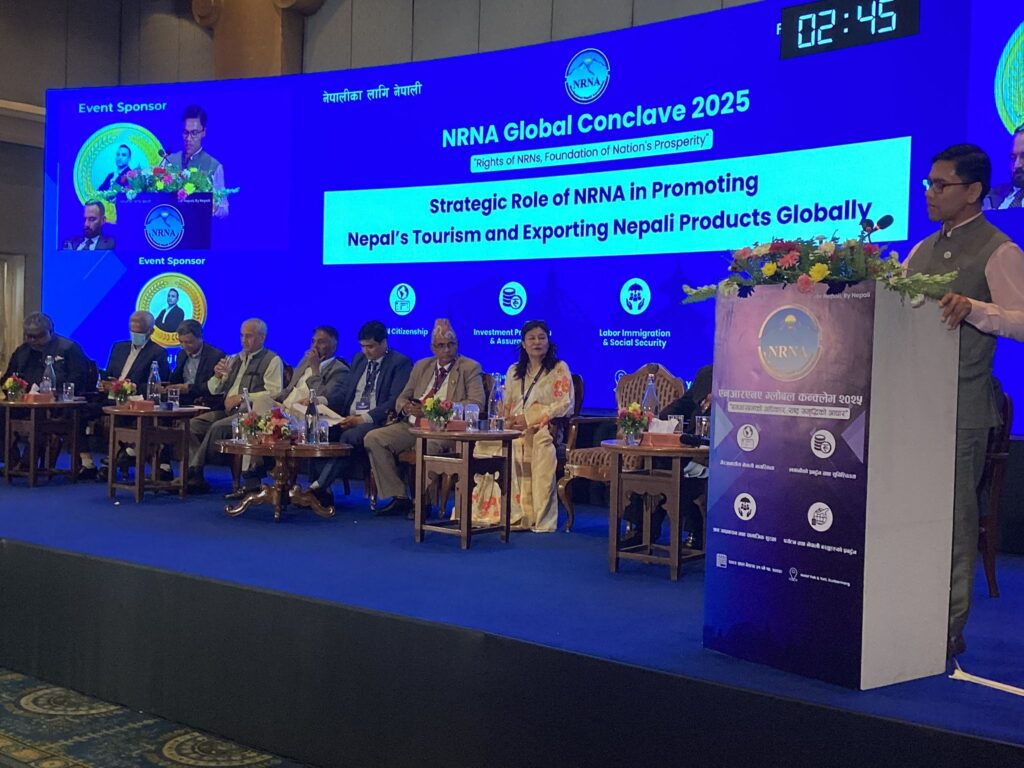
Mr. Tekendra Mahat, CEO of the Hotel Association of Nepal, advocated for the formal inclusion of NRNA in Nepal’s Tourism Act. He stressed the need for institutionalized collaboration among the diaspora, government bodies, and the private sector to ensure sustainable tourism development.
Mr. Rajendra Khetan, Honorary Consul of Portugal to Nepal, turned the focus toward exports. He highlighted the growing opportunities in global markets for products from women-led cooperatives and micro-enterprises. He recommended leveraging regional airports like Pokhara and Bhairahawa for cargo operations to support Nepal’s export ecosystem.
Calls for Policy Reform and Budget Allocation
Further contributions came from former Ambassador Mr. Mohan Krishna Shrestha and NRNA Secretary Mrs. Tika Gurung, who emphasized Nepal’s ecological diversity and cultural wealth. Both called for enhanced budget allocation, diplomatic engagement, and coordinated diaspora involvement in national development efforts.
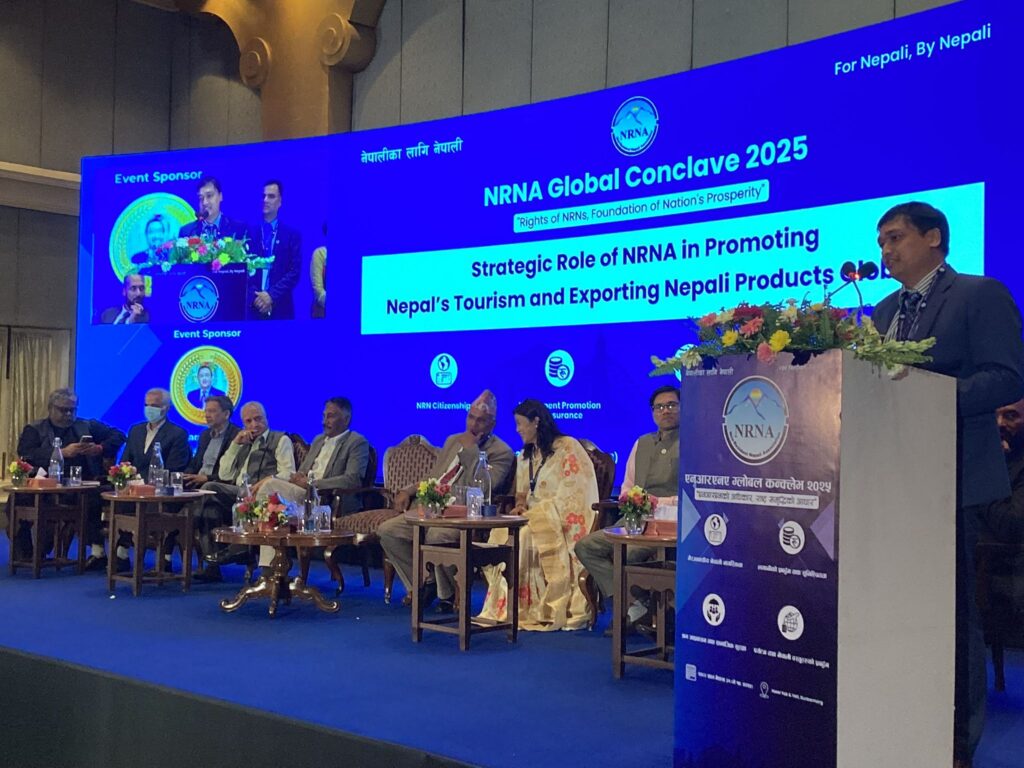
NRNA Vice President Mr. Binod Shrestha concluded the session with optimism, expressing confidence that the ideas, strategies, and policy recommendations discussed would be translated into actionable outcomes, fostering real-time change and reform.
Looking Ahead: Turning Momentum into Action
The session concluded on a high note, with participants united in the belief that the Nepali diaspora is a powerful catalyst for economic diplomacy and tourism promotion. With strong backing from the Ministry of Culture, Tourism and Civil Aviation, PATA, CAAN, and the private sector, the groundwork has been laid for a transformative era in Nepal’s tourism and export sectors.
